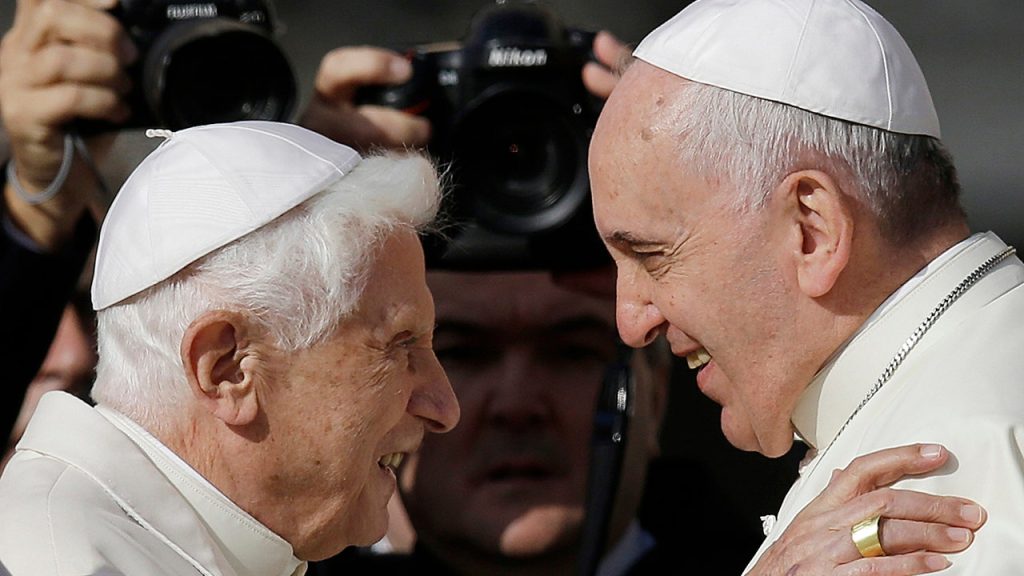The election of a new pope is a momentous event in the Catholic Church, characterized by intricate traditions that convey the future direction of the Church. The new pope’s choice of name plays a crucial role in signaling his priorities and approach to papal leadership. As the College of Cardinals gathers for the conclave to elect a successor, speculation surrounds potential names and their implications for the Church’s mission.
| Article Subheadings |
|---|
| 1) The Significance of Papal Naming |
| 2) Historical Context of Papal Names |
| 3) The Current Landscape: Expectations and Hopes |
| 4) The Role of the Conclave in Electing a New Pope |
| 5) Potential Names and Their Implications |
The Significance of Papal Naming
The selection of a papal name is not merely a ceremonial practice; it encapsulates the vision and values the new pope aims to promote during his tenure. When a pope takes office, he chooses a name, which is traditionally announced with the phrase “Habemus Papa,” meaning “We have a pope.” The name selected can reflect the predecessor’s legacy or signify a departure from previous ideologies. For instance, if a new pope opts for the name Francis II, it may represent a commitment to continue the inclusive and progressive legacy of Pope Francis, who focused on outreach to marginalized communities.
Historical Context of Papal Names
Historically, the practice of changing one’s name upon ascension to the papacy began in the sixth century. Pope Mercurius, who named himself John II to avoid pagan associations, set a precedent. By the 11th century, it became common for popes to adopt names that signified continuity with earlier saints or popes. Scholars suggest this trend reflects a desire for stability during times of change. The names chosen can often illustrate the papal priorities; for example, Pope Benedict XVI chose his name in homage to Benedict XV, who focused on healing during World War I.
The Current Landscape: Expectations and Hopes
As the College of Cardinals prepares for the conclave, various factions within the Church have different hopes for the next pope. Many within the Catholic community express a desire for someone who embodies a more progressive approach to issues such as social justice, environmental stewardship, and inclusivity toward LGBTQ+ communities. Conversely, conservative factions may long for a pope who embraces traditionalist values. The selection of the new pope will undoubtedly shape the Church’s direction in addressing contemporary challenges and affirming its teachings.
The Role of the Conclave in Electing a New Pope
The conclave, a gathering of cardinals, holds the critical responsibility of electing a new pope. The election process requires a two-thirds majority to secure the papal mandate. As cardinals deliberate, they engage in prayer, reflection, and discussions about potential candidates. This secretive nature allows them to gauge the needs of the global Catholic community without external influences. The process, steeped in tradition, can last anywhere from a few days to several weeks, depending on the consensus among the cardinals.
Potential Names and Their Implications
The potential names being discussed reflect both the hope and anxiety surrounding the selection process. Some observers speculate that names like John XXIV might suggest a commitment to modernizing the Church’s practices, akin to the reforms of Vatican II. Others anticipate a papal name that hints at a more conservative approach, possibly a return to names like Pius, which were historically favored by traditionalist factions within the Church. Notably, names that have not been chosen in centuries, such as Urban or Innocent, could carry significant weight indicating the chosen pope’s intentions.
| No. | Key Points |
|---|---|
| 1 | The choice of papal name reflects the direction the Church may take. |
| 2 | Adopting a name has historical roots dating back to the sixth century. |
| 3 | Expectations for the next pope are divided between progressive and conservative factions. |
| 4 | The conclave’s election process is shrouded in secrecy and tradition. |
| 5 | Potential names could signal significant shifts in papal priorities. |
Summary
The election of a new pope remains a pivotal moment for the Catholic Church, embodying both a continuation of tradition and an opportunity for reform. The name selected serves as both a reflection of past pontificates and a beacon of the new direction the Church hopes to follow. As the conclave approaches, the anticipation surrounding potential names underscores the multifaceted challenges that lie ahead for the Catholic faith in a rapidly changing world.
Frequently Asked Questions
Question: What does the papal name signify?
The papal name signifies the new pope’s vision and priorities for his papacy, reflecting both respect for his predecessors and ambitions for the future.
Question: How does the conclave process work?
The conclave is a gathering of cardinals who elect the new pope through a secret voting process, requiring a two-thirds majority for election.
Question: What historical significance do papal names hold?
Papal names carry historical significance, often representing continuity with past popes or indicating a specific direction the new pope intends to pursue during his leadership.


